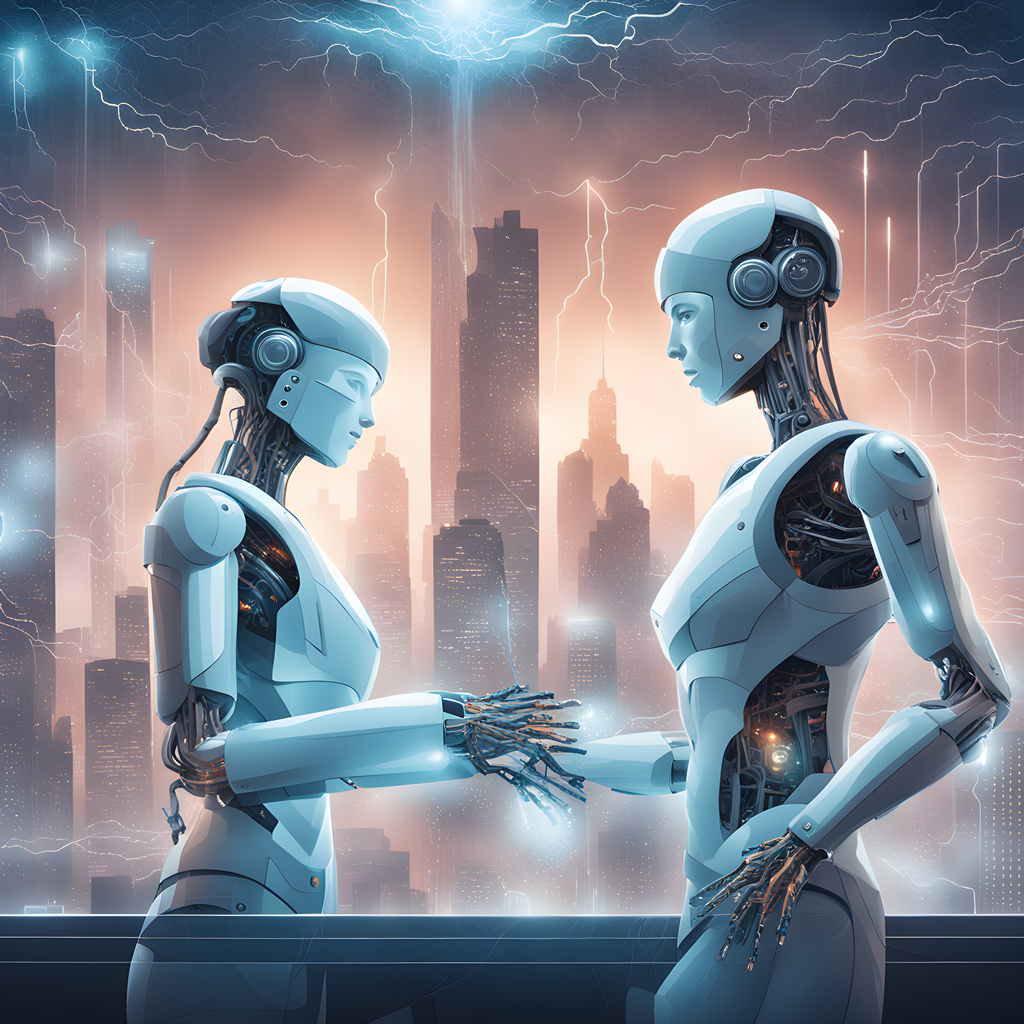Introduction
Artificial Intelligence (AI) stands at the forefront of technological innovation, promising to revolutionize our world in unprecedented ways. From automating mundane tasks to driving breakthroughs in healthcare and business, AI's potential seems boundless. Yet, as with any disruptive technology, it brings its share of challenges and ethical dilemmas. This article explores the multifaceted nature of AI, delving into both its promising benefits and the risks it poses.

Defining Artificial Intelligence
At its core, AI is about creating machines capable of thinking and learning like humans. This includes a spectrum of technologies, from machine learning, where computers learn from data without explicit programming, to deep learning, a subset of machine learning inspired by the structure of the human brain. These technologies are not just futuristic concepts; they are already integral parts of our everyday lives, from virtual assistants like Siri and Alexa to recommendation algorithms on Netflix and Amazon.
The Rewards of AI
The rewards of AI are vast and varied. In business, AI-driven automation increases efficiency and reduces costs, allowing companies to focus on innovation and customer service. In healthcare, AI tools can analyze complex medical data, aiding in early disease detection and personalized medicine. For instance, Google's DeepMind has developed an AI that can detect over 50 eye diseases with accuracy comparable to a human expert.
The Risks of AI
However, the rapid advancement of AI also raises significant risks. One major concern is job displacement due to automation. A report by the World Economic Forum estimates that by 2025, AI could displace 85 million jobs while creating 97 million new ones, indicating a massive shift in the workforce landscape. There are also ethical concerns, such as the potential for AI-powered surveillance systems to infringe on privacy rights, and the risk of AI algorithms perpetuating biases.
Balancing Risks and Rewards
Balancing the risks and rewards of AI requires proactive governance and ethical frameworks. This includes regulations that protect privacy and ensure fairness, as well as industry standards for responsible AI development. Initiatives like the AI4People forum aim to create a common public space for laying out these ethical guidelines.
The Future Outlook
Looking to the future, AI is poised to continue its transformative trajectory. However, its ultimate impact on society hinges on how we address the ethical challenges it presents. Thought leaders in AI, like Elon Musk and the late Stephen Hawking, have emphasized the importance of regulating AI development to ensure it benefits humanity as a whole.
Conclusion
The future of AI presents a complex tapestry of risks and rewards. As we stand on the brink of this AI-driven era, it is crucial to foster an informed dialogue about its ethical implications while embracing its potential to enhance our world. The journey into the AI future is not just about technological advancement; it's about steering that advancement in a direction that uplifts and benefits all of humanity.







